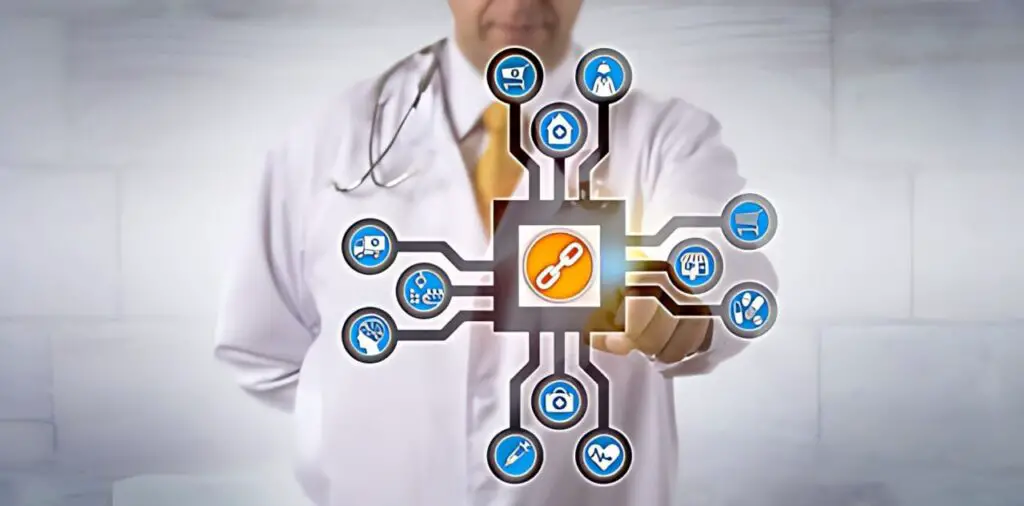The field of healthcare is on the cusp of a major transformation driven by artificial intelligence (AI). This article explores the exciting potential of AI in medicine, while also acknowledging the challenges that need to be addressed.
AI’s Transformative Potential in Healthcare
AI is making waves in healthcare with its diverse applications:
- Enhanced Diagnostics: AI-powered tools are revolutionizing diagnostics by analyzing medical images with exceptional accuracy. This can lead to earlier and more precise diagnoses, particularly for diseases like cancer where early detection is critical.
- Data-Driven Insights: AI excels at analyzing vast amounts of medical data. By identifying patterns and connections within patient records, AI can help healthcare professionals predict disease outbreaks, personalize treatment plans, and develop more effective therapies. This data-driven approach has the potential to improve patient outcomes and create a more preventive healthcare system.
- Robotic Surgery: AI is playing a groundbreaking role in robotic surgery. AI-powered surgical robots can perform minimally invasive procedures with unmatched precision and control, leading to faster recovery times, reduced scarring, and improved patient outcomes.
Challenges and Considerations
While AI offers a promising future for healthcare, there are challenges that need to be addressed:
- Bias in AI Algorithms: AI algorithms are trained on massive amounts of data. If this data is biased, the AI itself can become biased. This could lead to misdiagnoses or unequal access to care for certain patient groups. It’s crucial to ensure that the data used to train AI algorithms is fair and representative.
- Patient Privacy Concerns: AI systems rely on a tremendous amount of personal health data. This raises concerns about data security and how this information is used. Robust data protection measures are essential to ensure patient privacy is not compromised in the pursuit of AI-driven advancements.
- Human Oversight and Control: While AI can be a powerful tool, it’s important to remember that it is not a replacement for human expertise and judgment. Healthcare professionals should use AI as a tool to augment their decision-making, not replace it entirely.
- Transparency and Explainability: In some cases, AI algorithms can be complex and their decision-making processes opaque. It’s important to develop AI systems that are transparent and explainable, allowing healthcare professionals to understand how AI arrives at its conclusions.

The Road Ahead: Ethical and Responsible AI Integration
AI holds immense potential to revolutionize healthcare. However, addressing concerns about bias and data privacy is essential to ensure that AI is used ethically and responsibly. By fostering open dialogue and collaboration between healthcare professionals, technologists, and policymakers, we can harness the power of AI to create a healthier future for everyone.pen_sparktunesharemore_vertexpand_contentadd_photo_alternatemicsend
Gemini may display inaccurate info, including about people, so double-check its
